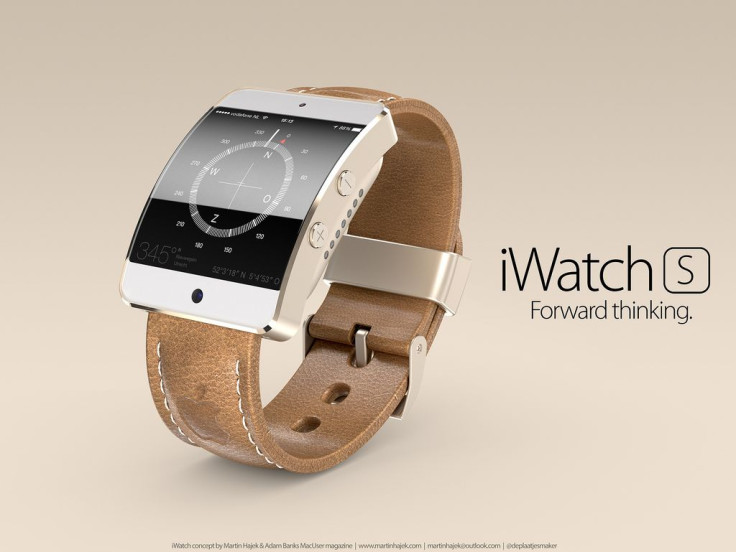Will iWatch Do For Wearables What iPad Did For Tablets?

Apple may be a little ahead of schedule on its rumored iWatch, as the China Times reported Tuesday, but that doesn’t mean the product will launch any earlier than fall. There’s way too much on the line for the tech giant to depart from its tried-and-true strategy of coming to market only when they’ve got it right.
The new wearable, expected to release in late September, is the first new product launch under CEO Tim Cook and comes amid chatter that Apple may be losing its innovation mojo. And with polls showing the public less than rabid for wearables, it’s hard to imagine Apple’s iWatch could do for the wearable market what its iPad did for tablets.
Cook has been tight-lipped, as usual, regarding the rumored device, but he has been promising a “new category” of products, saying on an investor call just last week that Apple is "closer than ever" to releasing something new. The iWatch will be Apple’s first new device since Cook took over after founder Steve Jobs’ death in 2011.
While Apple is just now hitting production, competitors have been selling their own wearables for many months -- with lackluster numbers. The Pebble, a Kickstarter-funded smartwatch, sold a paltry 400,000 units last year. A recent report by Strategy Analytics stated that just 2 million wearables shipped last year (“shipped” being the key word), 61 percent of which were Android devices. But Matt Wilkins of Strategy Analytics suggested that the nascent market is poised to grow, believing that the market will experience a 350 percent boom in 2014 and a quadrupling by 2018, up to 154 million devices shipped, 71 million of which will be smartwatches.
Right now, though, interest is rather tepid. According to a September 2013 study by Harris Interactive, only 47 percent of Americans are interested in wearable devices, and sales of current wearables like the Samsung Galaxy Gear and Pebble have been sluggish.
But Apple, of course, has a history of taking industries that are not performing well and revolutionizing them. They did it first with the MP3 player, next with the smartphone and most recently with the tablet. And Apple maintains a fashionably late mentality for device launches. As Cook pointed out on Apple’s recent quarterly earnings call: Apple doesn’t want to be first; it wants to be the best.
One thing that may give Apple’s iWatch the edge in the market for touchscreen smartphone-companion devices is its integrated ecosystem. For the uninitiated, a device ecosystem refers to a catalog of devices that connect with each other -- for example, the iPhone and the iPad can share files wirelessly through Apple’s Airdrop, and Google’s Android devices sync via the Web to Google Drive.
The closed ecosystem of Apple’s iOS may be more beneficial to a smartwatch. Google recently announced Android Wear, a mobile operating system developed with wearables in mind. But the problem with Android is the number of devices that run different versions of Android. The most recently released Android version is called KitKat, v4.4 (Android devices are named after delicious treats). However, only 5.3 percent of devices run that version. The majority of devices run Jelly Bean (v4.1, 4.2, 4.3), Gingerbread (v2.3) and Ice Cream Sandwich (v4.0). Apple’s most recent version of iOS, iOS 7, runs on 87 percent of all Apple mobile devices.
Consider the developer’s dilemma when creating an app for a smartwatch. On Android the app will have to be programmed to work on Android Wear and to communicate with four different versions of Android OS, where on Apple the same version of iOS will run on all devices. Currently, iOS 7 powers the iPhone, iPod Touch, iPad and Apple TV.
Robert Scoble, noted tech evangelist and blogger, thinks Apple’s iWatch will be a big hit -- sales of 10 million in the first month, he predicts -- thanks to the talents of Jony Ive, Apple’s senior vp of design. Ive helped design the iMac, the iPod, the iPhone and the iPad among many other devices, and his reputation, Scobie contends, will hang on the iWatch’s success, the same way Cook’s will. “They both have their legacy wrapped up in this,” he told International Business Times.
According to Scoble, Apple is successful not because it’s later to market but because of its design and aesthetic. He believes Apple will be conservative with the iWatch’s features and sensors but that the device will function seamlessly. “I expect it to be beautiful and to work well,” Scoble stated. That’s Apple’s definition of getting it right.
© Copyright IBTimes 2024. All rights reserved.





















